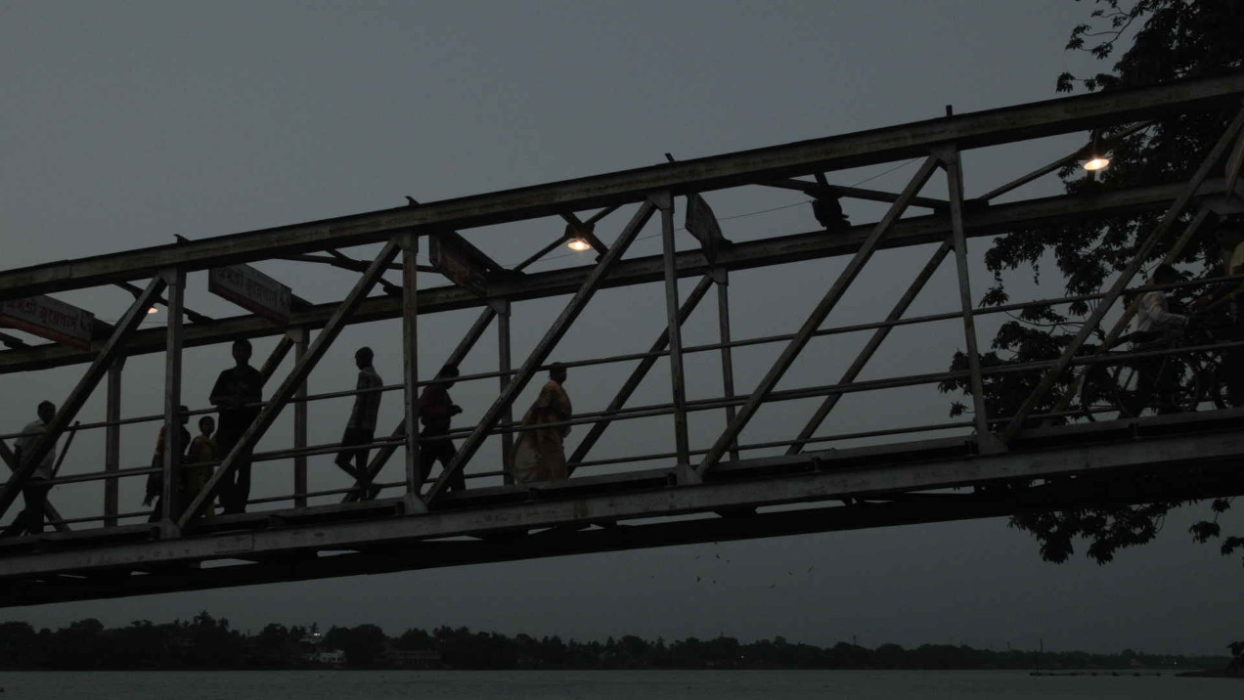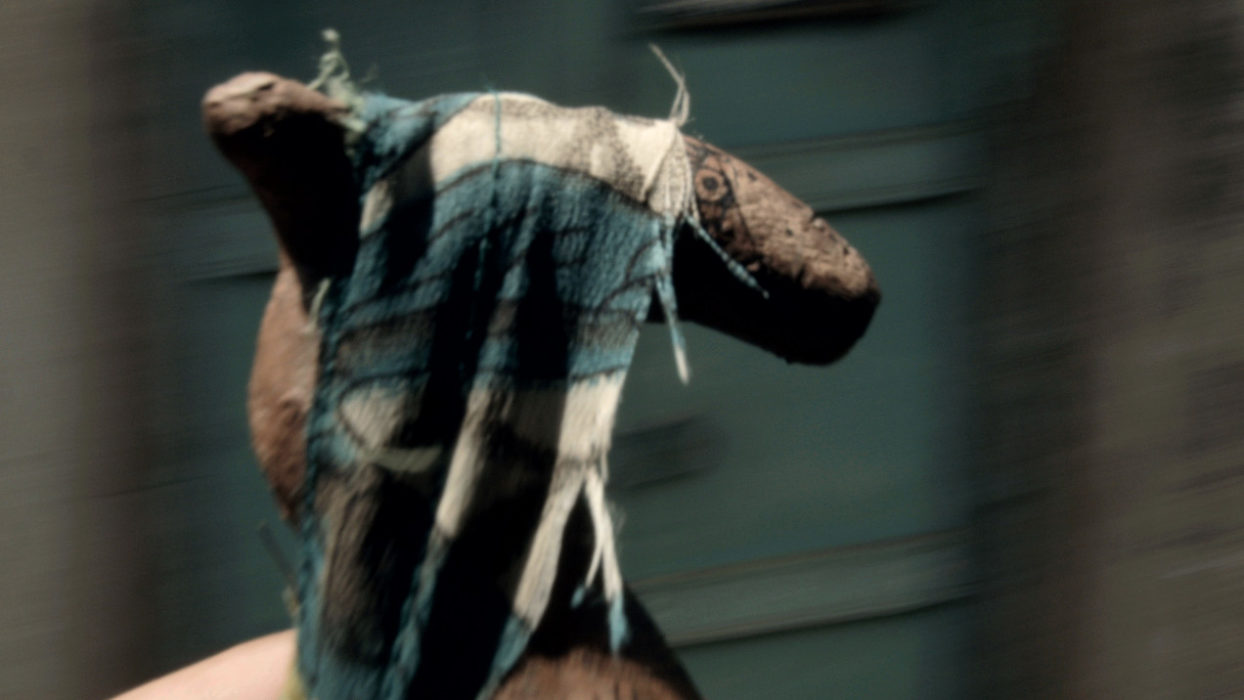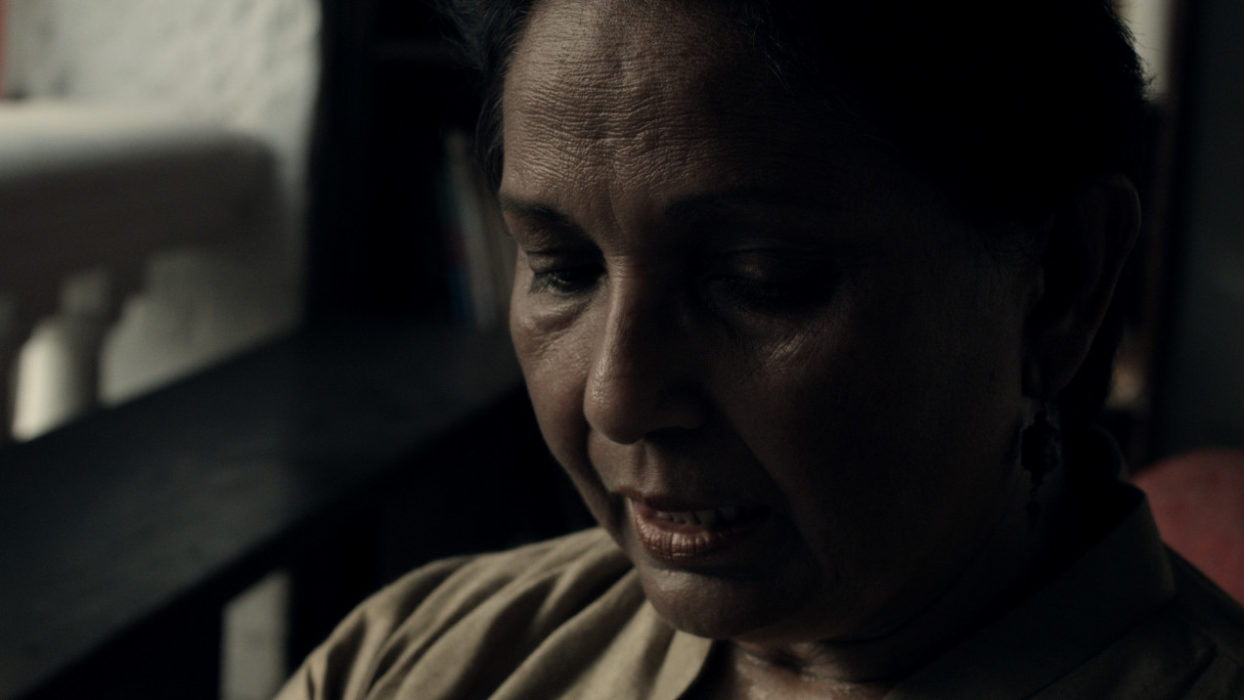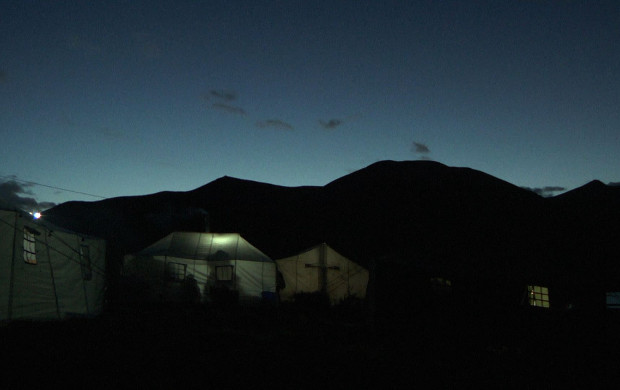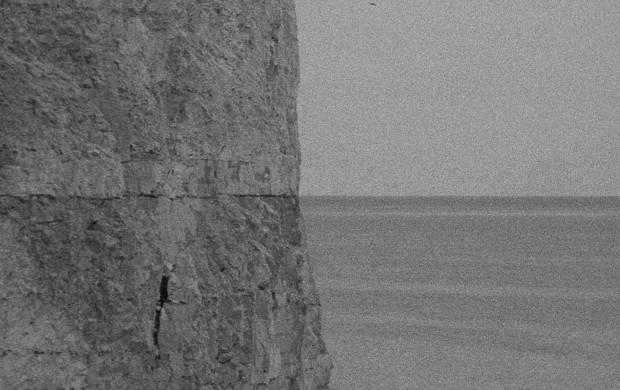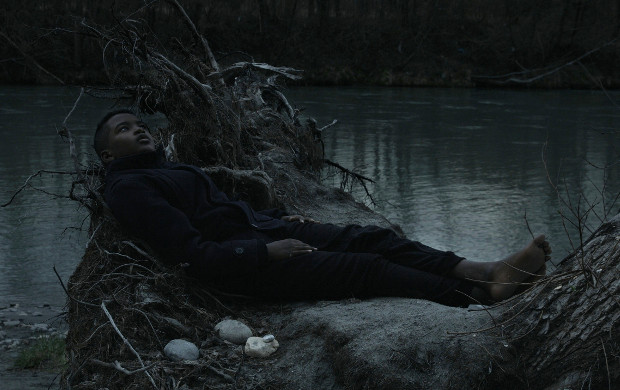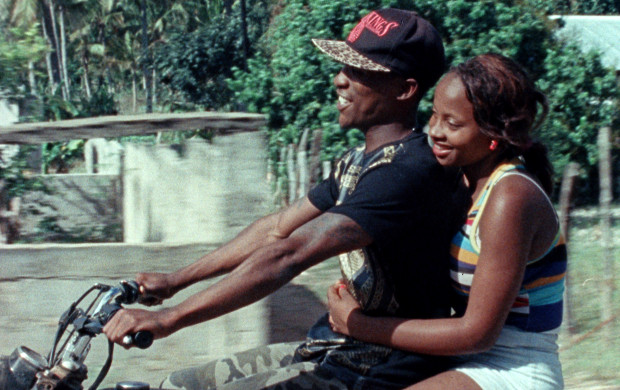Tepantar
- 2017
- France
- 28 minutes
- French; Bengali
“Tepentar (horizon) is the story of a youngster who wanted to become stateless. . . . Oedipus, Marguerite Duras, Guy Hocquenghem and Gayatri Chakravorty Spivak offer him words as sharp as spears that he one day offers to Sudipta Mitra Datta, a multilingual bird capable of singing new horizons.” (Pierre Michelon)
“Tepantar is the story of a youngster who wanted to become stateless… Oedipus, Marguerite Duras, Guy Hocquenghem and Gayatri Chakravorty Spivak offered him words as sharp as the spears that he one day gave to Sudipta Mitra Datta, a multilingual bird capable of singing new horizons.” In West Bengal, in a former trading post of the French colonial empire, Pierre Michelon finds an external vantage point to film France with a “small f ”, to quote the words of the philosopher Guy Hocquenghem in The Beauty of Mixed Blood. Reflections of a Francophobe (1979). Having this compelling text heard in a Bengali interpreter’s translation, he orchestrates a gentle decentring thanks to the change of language, voice and gender. It is less a matter of criticising his country of origin as what it compels us “to do and to be”, in other words, nationality as an “impractical garment” (Hocquenghem). With an imaginary friend to hand – a small clay-fired horse found on the spot – the filmmaker uses the editing and sound track to bring about “a stateless dream”. He also films the hens of Tepantar Theatre, from the preparation of their pen to their sale. Deprived of their freedom, these captives serve as a repoussoir for the free spirit incarnated by childhood, gay activism and literary creation. (Charlotte Garson)
- Production : Olivier Marboeuf; Spectre productions
- Distribution : Lou Jomaron
- Editing : Pierre Michelon; Olivier Marbœuf
- Sound : Pierre Michelon
- Photography : Pierre Michelon
